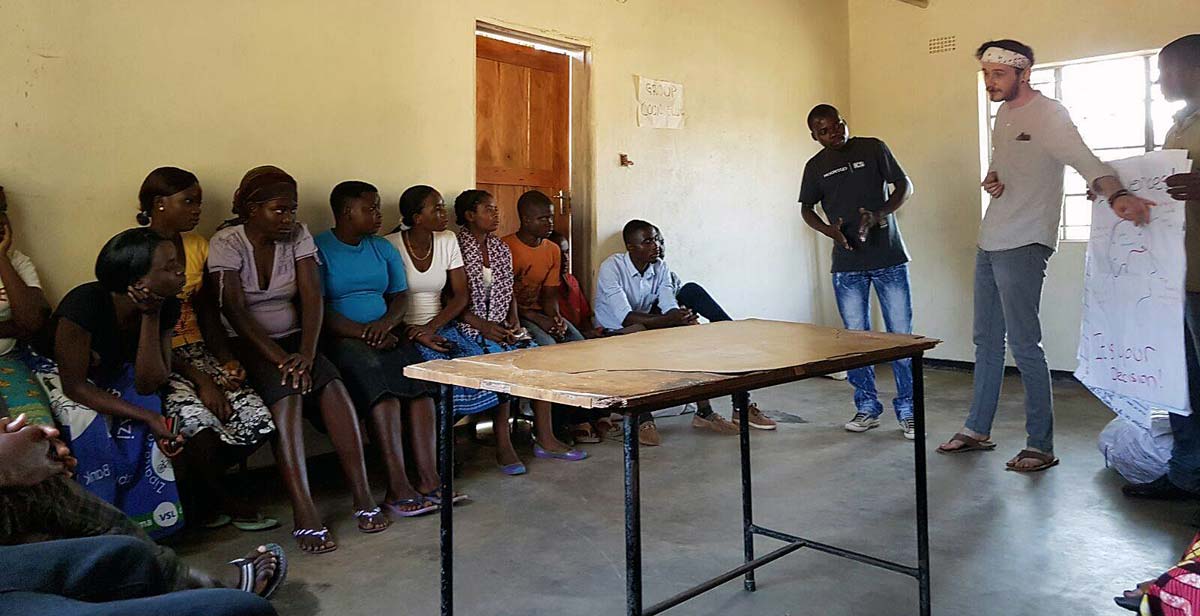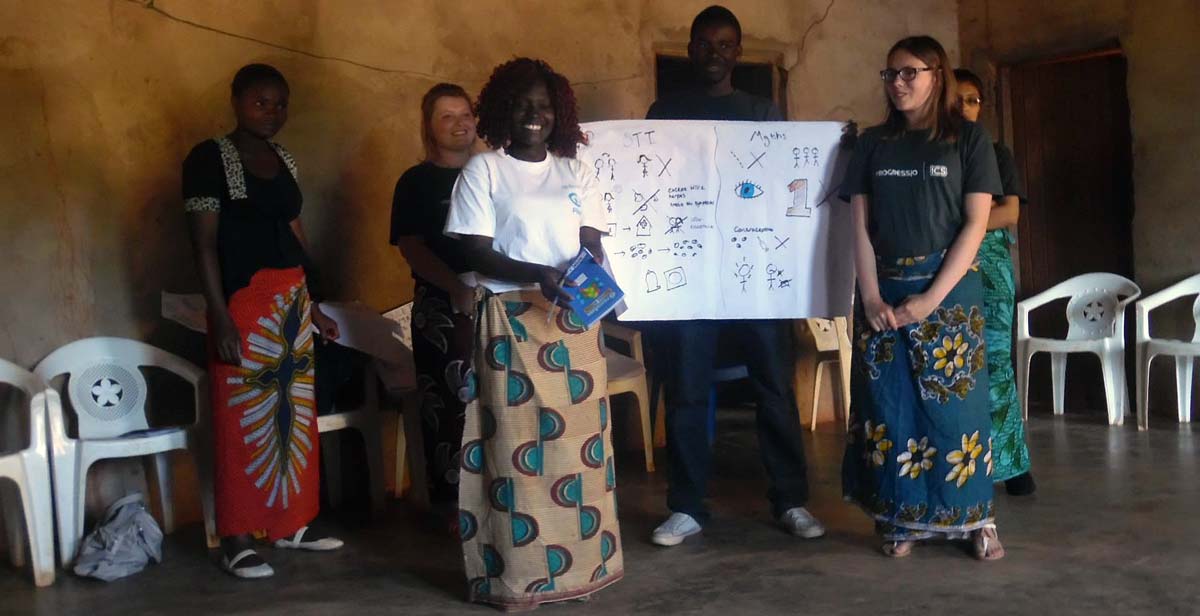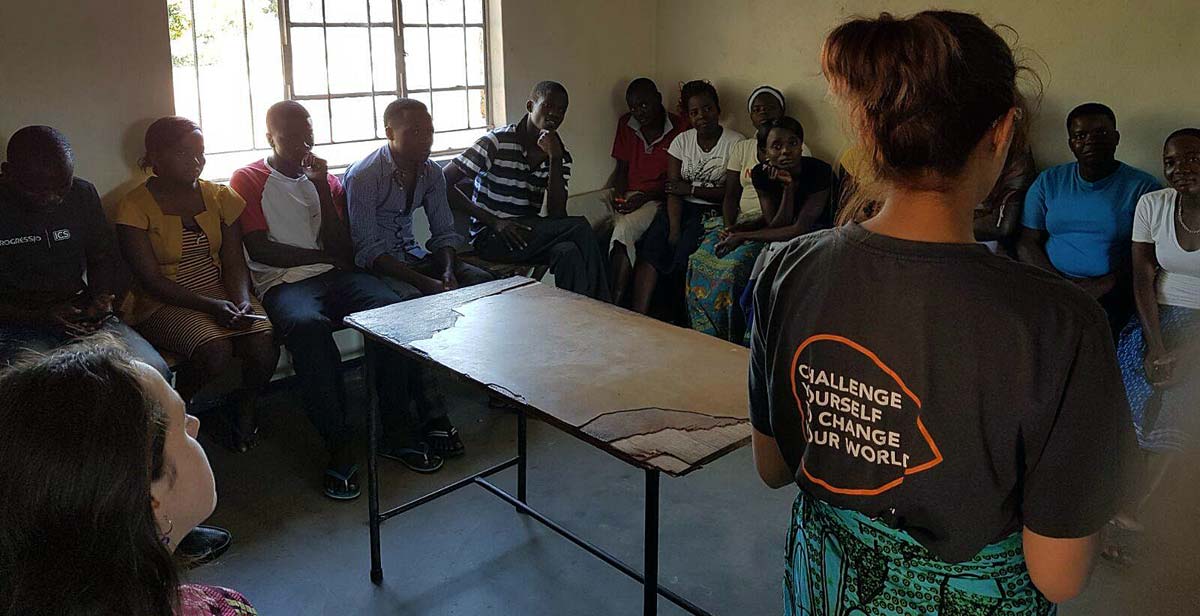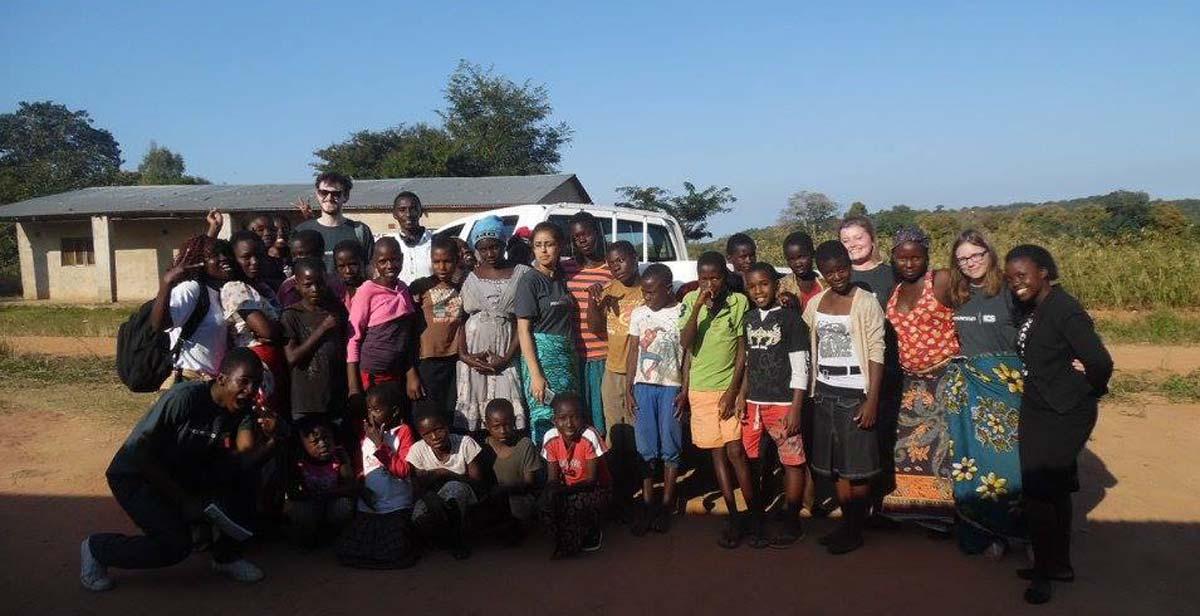In my last blog, I discussed the cultural difference between the UK and Malawi concerning time and the different factors that make up progress. I concluded that the UK had a lot to learn when it comes to the treatment we afford each other. We have placed too much dependence on material wealth, work and self-interest due to having so much expectation to achieve happiness and a sustainable future. This has led us to take the priceless things for granted, such as family, friends and the NHS.
Another expectation we have imposed on ourselves, and a significant cultural difference between the UK and Malawi, or at least from what I’ve noticed, is appearance and how different both our perceptions toward the importance of appearance is in social situations, and life in general.
Having spent the last couple of weeks living with my host family while working in and around the Nkhata Bay area, one thing I have been made aware of is mirrors. In my host home and the homes of my fellow volunteers, you’ll find no mirrors. None in the bathrooms, none in the living rooms and none in the kitchens. I was made aware of this observation by a fellow volunteer at the lovely restaurant Kaya Papaya last week. Seriously, it does the best Thai Green curry! Anyway, back to the point, Malawian homes very rarely have mirrors, if any at all. If they possess a mirror, the only one I have seen is a little pocket mirror, usually for readjusting hair. It hit me with a wave of clarity, we in the UK have become dependent on our appearance and the way we look either as a way to shield ourselves, self-confidence, vanity or superficiality.
When I think of the standard UK home, our rooms are so transparent thanks to mirrors. We have the opportunity to see what we look like every second of every day. Living in Malawi, observing another culture and how people have differing perceptions of things you take for granted, can lead you to question the society in which you are brought up; and you see clearly the capacity for our own vanity and the ways people use their appearance to hide their insecurities. It’s true that travelling really does put things into perspective. You ask questions and wonder why has our society become so dependent on appearances to facilitate our insecurities, rather than just accepting them? And why do we have insecurities in the first place? It’s not like we’re born with them, they are handed to us by outside factors such as parents, friends, the school bully and larger systems, such as television and the media, etc!
In the UK, our appearance has become one of the fundamental aspects and expectations. Before work, before clubbing and even before going into town to do some shopping, the way we look and whether we look good enough are vital considerations when we leave the house. It’s not something we naturally think about and it’s a sort of mild reminder, which pops up whenever you foresee a situation that places you in the sight of others. Of course, for some it’s not so intense, but for others it’s crucial.
Noticing the ways in which Malawians do things and having spent time around the villages of Nkhata Bay we, in the UK, have the means to see ourselves; and we use those means, often unaware that we are using them in the first place. These tools that vary from mirrors, cameras and cosmetics to even exercise products do suit a practical function because looking good makes you feel good; and that is supposed to rid us of our insecurities. Although, it’s only because we are taught that these tools exist to make us feel better that we actually use them, without asking ourselves why we need to feel better. There is so much more to consider than ‘Chris, my biceps are looking on point today,’ or ‘Barbra, does my hair look straight?’. What do these even mean?. Respect for one another might seem idealistic, but I’d prefer to live in a society which uses their eyes less to judge and more to observe and empathise - to appreciate the differences we are all born with, or are the result of life’s many problems.

We all live inside the same society and sometimes just let loose with our judgements and prejudices. We need to be aware of these moments and keep ourselves in check. You, I, and our neighbours, we are all guilty of a cheeky analysis of ourselves, or someone else’s appearance; from commenting or judging the person wearing joggers at a club and checking ourselves in the mirror before and after showering, to a River Island changing room because they have the mirrors that let you see everything. It’s something that’s always there in some way and is second nature. Just another expectation we have imposed on ourselves through society’s many influences and technologies. The successful marketing of mirrors, cameras and beauty.
In Malawi, their perception of appearance and its importance is different to the UK in terms of the means in which we use it to see ourselves on a daily basis. Appearance isn’t an everyday priority! We both have insecurities, how could we not! We both live in societies and experience judgement. The difference is in the form of judgement and to the extent we deal with it. Their perceptions of appearance and how you ‘should’ look is categorised on traditional grounds and considered a priority on the basis of respect; and you can make a case that appearances in Malawi remain gender specific, but you’d be missing the point. Yes, we consider gender specific clothing in Malawi to be an issue, and in some ways we’re right. However, it’s only because the UK has developed down specific routes of gender equality and self-expression that we can make those sorts of observations.
The way Malawian societies dictate dress code and whether you will be judged in public for your appearance is based on culture; and everyone in Malawi understands there is a custom and meaning in why you wear a certain piece of clothing. For instance, the Chitenje is a piece of clothing that women must wear in society and public, out of respect. Wearing it is intertwined with pregnancy and birth. I understand, for people in the UK this can be considered oppression of women by essentially forcing their decision to wear it, otherwise at the risk of societal judgement. Nevertheless, we are not as self-righteous as we try to make out. We are not or should not be in the position to suspend judgement on ourselves when it comes to the everyday judgements we fling around at each other over the most ridiculous things. Wearing a specific piece of clothing, which symbolises a part of your culture, be it gender specific, is not the same as school kids ripping into Clarence because she shops at Primark!
For Malawi, appearance in the form of material possession and price tags is almost non-existent, or at the very least not important. Malawian’s are able to start a day, have a shower, and get on with their work and daily activities without stressing about another person wearing the same shirt. Don’t get me wrong, I’m not stating that appearance and how you look isn’t important to Malawian’s. It is! One of the more popular questions asked by volunteers at the training day was ‘what do I wear?’. The answer was ‘wear what you normally do.’ Malawians do consider appearance important, which I’ve already mentioned. However, how you look in terms of the ways the UK perceive appearance is only important when it comes to the workplace, events and culture; and even then you could probably cut out events. If a Malawian is going to church, they will dress up in their best. In the workplace or situations where they are in the presence of respectable members of the community, which they call chiefs or traditional leaders, their appearance will also become a major factor and the Chitenje for women will be present.

These attitudes toward appearance and its involvement with culture is quickly slipping away in the UK. This isn’t necessarily a negative thing and I don’t mean to come across as if it is. We do have insecurities, which we enjoy to hide through the way we model our appearance; and the importance of individuality and self-expression are two things I believe have given the people of the UK freedom to experiment with their personalities. Even if you do regret that top knot you had last summer.
What I’ve noticed, however, is that these things have now become so exacerbated due to retail and cosmetic business playing on our values and like a sponge have almost rinsed them clean. Thousands of different products are easily available to make you look the best all the time, like someone someday decided looking good all the time was a great idea! It’s just unnecessary over-expectation that these values, which seemed awesome, are now becoming saturated by materialistic greed and competitiveness. How you look physically, and more importantly, how you should look is peddled from billboards to TV commercials. Sorry, I just can’t be expected to look acceptable every day, sometimes I just enjoy to strut in Tesco in my pyjamas!
We have so much that it’s become a culture of competitiveness. Massive clothing companies feed off society’s need for the newest trend of clothes and cosmetics. Get the new mascara, which makes your eye lashes curvier than the last mascara that claimed to do exactly the same thing. It seems a never ending cycle of new fashions and returning fashions that soon all become last season, thus the process starts again. You can walk into your local pharmaceuticals and there’ll be rooms the size of football fields crammed with makeup, creams and body wash all designed for the same purpose; to make you spend hundreds to look like that hot man or woman from TV. Damn you Hugo Boss and your unrealistic expectations! Okay, maybe not everyone in this instance, but you do get that feeling you’re being judged if you have pimples or spots, which usually clear up in a week anyway. The lines between appearance, beauty and vanity are slowly blurring. Beauty has become something you can market and instead of individualism and self-expression we now have self-indulgence and superficiality.
Either due to personal preferences, or a need for gratification, appearance is centre stage.
So, is the solution to neglect appearance all together and become couch potatoes? Well, I borrowed my friend’s mustard check shirt and wore it constantly for two weeks straight, it was fantastic! Of course, I’m not arguing for neglect and apathy, but nor am I advocating for a cultural system of gender specific clothing, either. Looking good can be a great thing when it gives us confidence and a sense of identity and belonging, which is certainly evident here in Malawi with the way they perceive appearance. What we need to learn is to avoid the extremes. The judgements we throw around and our greed for pointless material things to make us look better, rather than good, do have consequences for larger society. Malawians don’t stress about how others view them every second of everyday as if real life was a catwalk. They don’t pretend to be a Hollywood film star dressed perfectly for the next photo, it’s not the way it’s done around here.

Our purpose here in Malawi is to work alongside the local community to develop their society into something more sustainable based on the values of human rights and democracy. However, as I’ve mentioned before, progress can come from anywhere, not just a handful of UK volunteers in a couple of cycles of community awareness sessions - it is a good start though. I certainly believe the UK has the capacity to enlighten Malawi on the importance of freedom and empowerment when it comes to women’s situation in society, and appearance in general. Fashion and beauty are not negative things, but they are corruptible. Individuality and your choice to wear what you like is something we should attempt to hold onto with every ounce of strength, as if we were in a sale and there was only one pair of skinny jeans left and someone has already grabbed one leg. I’m a skinny jean type of guy. But claiming back these values from big business isn’t the only thing, we must also show other societies the benefits. Malawi is no exception. There are issues here I see as an outsider each day, but these issues reflect our own back home. We can learn so much from each other, and for the UK we can learn respect and appreciation of someone else’s differences without getting blinded by vanity. We can learn that our insecurities are merely placed on each other by ourselves due to greed and competitiveness.
We are quickly freeing ourselves of cultural restraints on how women and men should look and have made great progress for non-gender specific appearances. However, this rejection of traditional cultural appearance has failed to present any sensible alternative; and in our confusion we have handed the mantle to vanity and corporate greed to decide our appearance. We need to come together, both the UK and Malawi, to discover a middle ground, which doesn’t play on our insecurities, but celebrates them. We both have much to learn and share, so let’s smash the mirrors and put the cameras down.
*On a side note and just for educational purposes, the Chitenje is a piece of fabric either two metres or four metres (depending on how deep your wallet is) women wear around the waist if they are without child and to hide their legs, above the waist if the woman is pregnant, and just below the breasts is for three months after conception.
Written by ICS volunteer Calum Mewet



